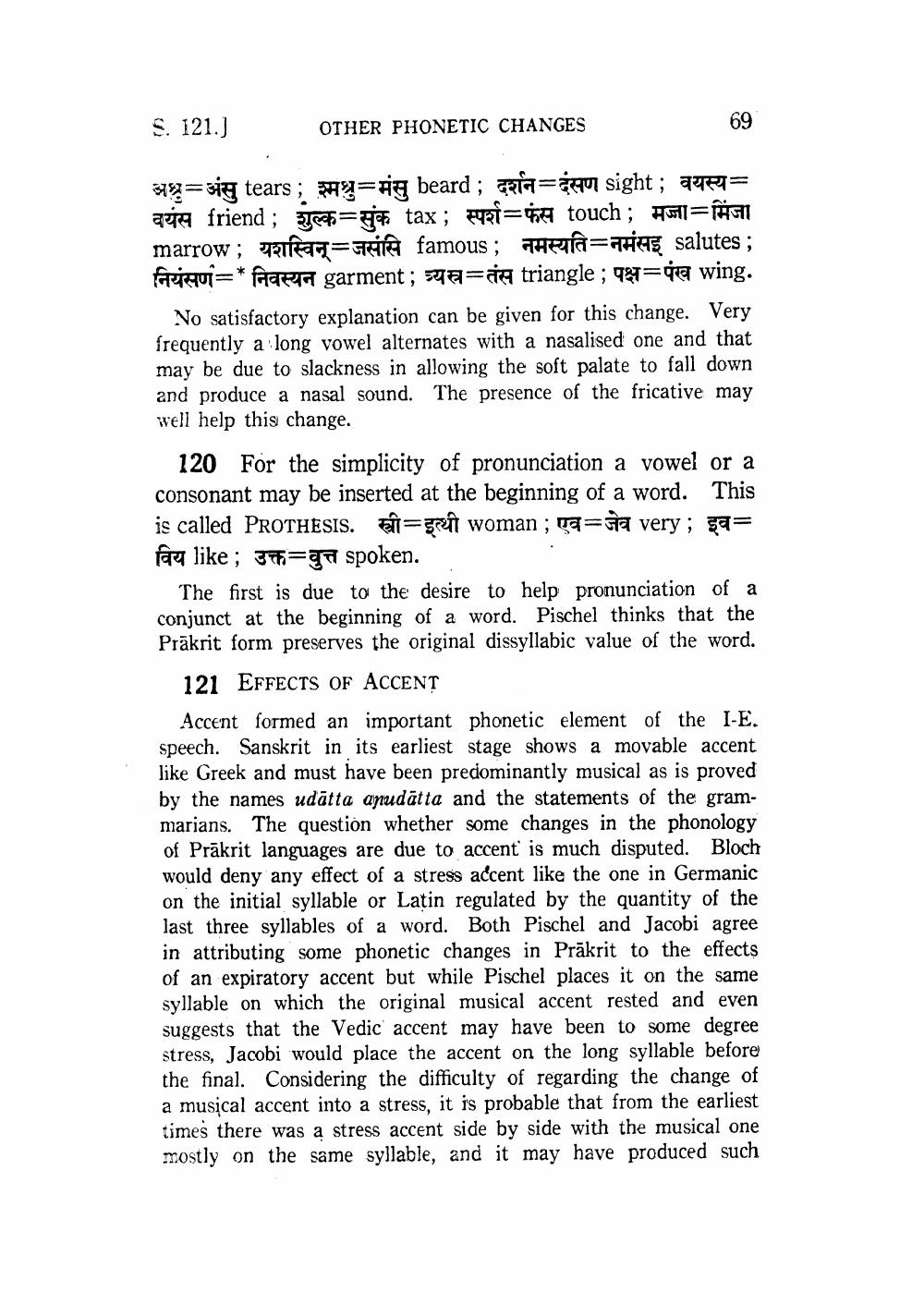________________
S. 121.)
OTHER PHONETIC CHANGES
39=sių tears; a=q beard; a= 40 sight; age= area friend ; 1 =gjë tax; pat=64 touch ; HG=ÄN marrow; a=Fri famous; He farmas salutes ; Fariqui=* faen garment; a=da triangle ; 99=de wing.
No satisfactory explanation can be given for this change. Very frequently a long vowel alternates with a nasalised one and that may be due to slackness in allowing the soft palate to fall down and produce a nasal sound. The presence of the fricative may well help this change.
120 For the simplicity of pronunciation a vowel or a consonant may be inserted at the beginning of a word. This is called PROTHESIS. F=geeft woman ; TE=Ga very ; 59= विय like ; उक्त-वुत्त spoken..
The first is due to the desire to help pronunciation of a conjunct at the beginning of a word. Pischel thinks that the Präkrit form preserves the original dissyllabic value of the word.
121 EFFECTS OF ACCENT
Accent formed an important phonetic element of the I-E. speech. Sanskrit in its earliest stage shows a movable accent like Greek and must have been predominantly musical as is proved by the names udātta anudātta and the statements of the grammarians. The question whether some changes in the phonology of Prākrit languages are due to accent is much disputed. Bloch would deny any effect of a stress accent like the one in Germanic on the initial syllable or Latin regulated by the quantity of the last three syllables of a word. Both Pischel and Jacobi agree in attributing some phonetic changes in Prakrit to the effects of an expiratory accent but while Pischel places it on the same syllable on which the original musical accent rested and even suggests that the Vedic accent may have been to some degree stress, Jacobi would place the accent on the long syllable before the final. Considering the difficulty of regarding the change of a musical accent into a stress, it is probable that from the earliest times there was a stress accent side by side with the musical one mostly on the same syllable, and it may have produced such




